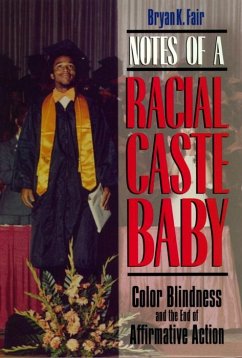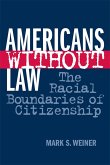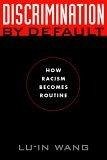In this provocative and important book, Bryan K. Fair, the eighth of ten children born to a single mother on public assistance in an Ohio ghetto, combines two histories - America's and his own - to offer a compelling defense of affirmative action. How can it be, Fair asks, that, after hundreds of years of racial apartheid during which whites were granted 100 percent quotas to almost all professions, we have convinced ourselves that, after a few decades of remedial affirmative action, the playing field is now level? Fair ambitiously surveys the most common arguments for and against affirmative action. He argues that we must distinguish between America in the pre-civil rights movement era - when the law of the land was explicitly anti-black - and today's affirmative action policies - which are decidedly not anti-white. He concludes that the only just and effective way both to account for America's racial past and to negotiate current racial quagmires is to embrace a remedial affirmative action that does not rely on quotas or fiery rhetoric but takes race into account alongside other pertinent factors. Championing the model of diversity on which the United States was purportedly founded, Fair serves up a most personal and persuasive account of why race-conscious policies are the most effective way to end de facto segregation and eliminate racial caste.








